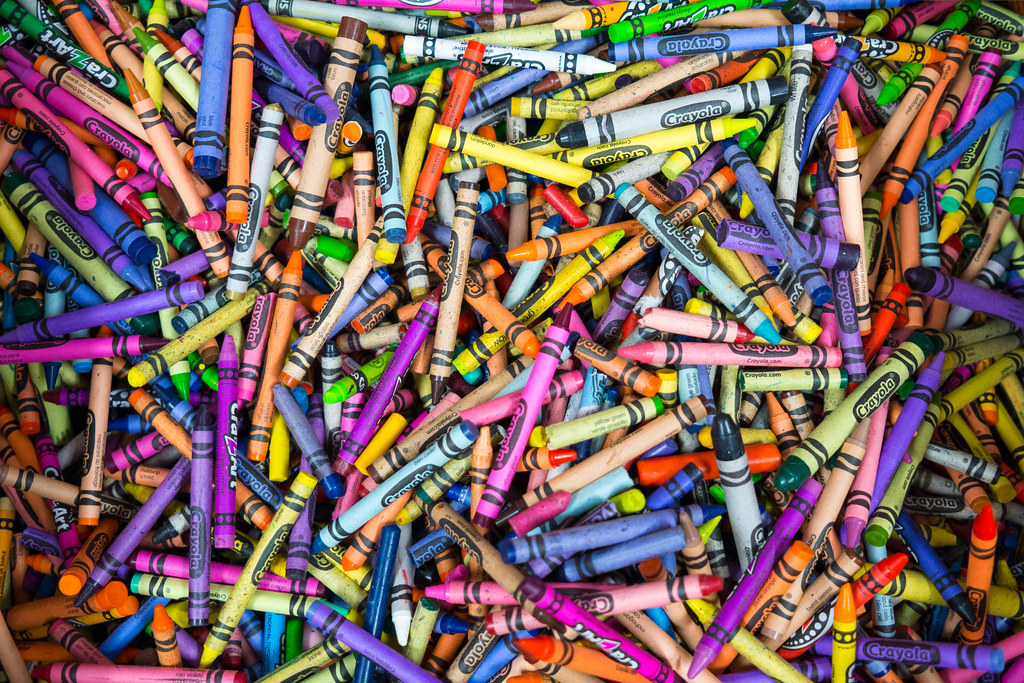 |
| photo credit https://c1.staticflickr.com/9/8648/16462767919_1f5599bdd9_b.jpg |
I have a very vivid memory of my oldest child's entry into kindergarten. The school sought to save money by giving parents a list of supplies required for each child. That included a box of crayon. On the day we brought in our children and their supplies, the assistant teacher opened up each box of crayons to empty the contents into a container. That's when we learned that we were not buying the crayons for our own kids the way we bought them a knapsack or the like; we were buying crayons that became general classroom supplies.
Those of us who had not been through this before were a bit surprised. One mother even said, "Had I known that they would do that, I would have bought the cheaper crayons rather than the thicker, more expensive ones."
This mother didn't mind having to buy her child the crayons to use for schools. She even spent more than she had to because she wanted her child to have the best ones on the market. So she felt letdown that her kid would not even get to use those crayons any more than any other kid in the class whose parents may have just bought the cheap, thin kind of crayons.
From her perspective, it may be like lovingly preparing a carefully planned out lunch for her child, only to discover that all the lunches are mixed up together, and other kids have brought jelly sandwiches.
That encapsulates much about human nature. We are motivated to do more when we feel that we -- or our children -- benefit directly. If we find out that they benefit only indirectly we would not have enough motivation to put in more than the bare minimum. Consequently, the parents who had already been there, done that knew there was no point in buying the special crayons as they might have if each child kept his/her own pack of crayons.
That is not to say that people aren't generous. I'm certain that mother would have willingly contributed several dollars for a fund to provide families that could not afford school supplies with what they need. It is rather the sense of futility of seeing your extra effort disappear in the sea of average that is demotivating.
Those of us who had not been through this before were a bit surprised. One mother even said, "Had I known that they would do that, I would have bought the cheaper crayons rather than the thicker, more expensive ones."
This mother didn't mind having to buy her child the crayons to use for schools. She even spent more than she had to because she wanted her child to have the best ones on the market. So she felt letdown that her kid would not even get to use those crayons any more than any other kid in the class whose parents may have just bought the cheap, thin kind of crayons.
From her perspective, it may be like lovingly preparing a carefully planned out lunch for her child, only to discover that all the lunches are mixed up together, and other kids have brought jelly sandwiches.
That encapsulates much about human nature. We are motivated to do more when we feel that we -- or our children -- benefit directly. If we find out that they benefit only indirectly we would not have enough motivation to put in more than the bare minimum. Consequently, the parents who had already been there, done that knew there was no point in buying the special crayons as they might have if each child kept his/her own pack of crayons.
That is not to say that people aren't generous. I'm certain that mother would have willingly contributed several dollars for a fund to provide families that could not afford school supplies with what they need. It is rather the sense of futility of seeing your extra effort disappear in the sea of average that is demotivating.
